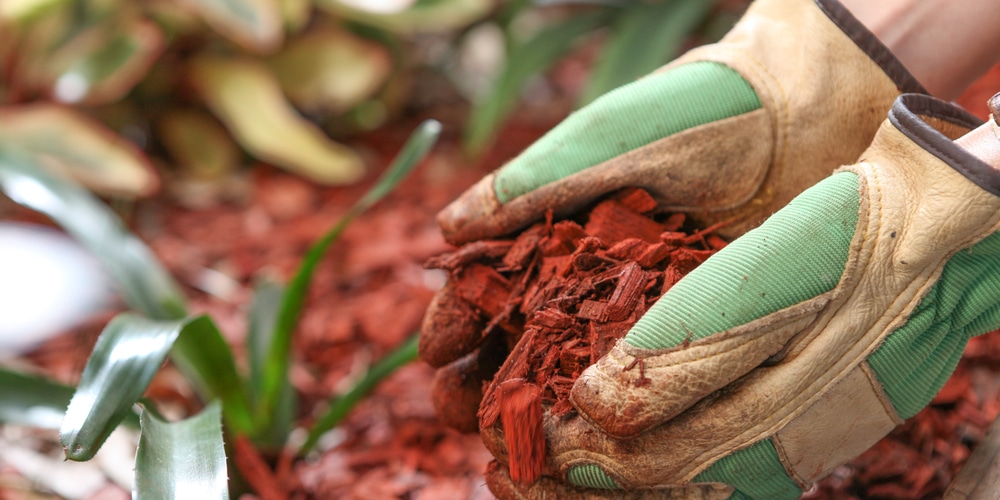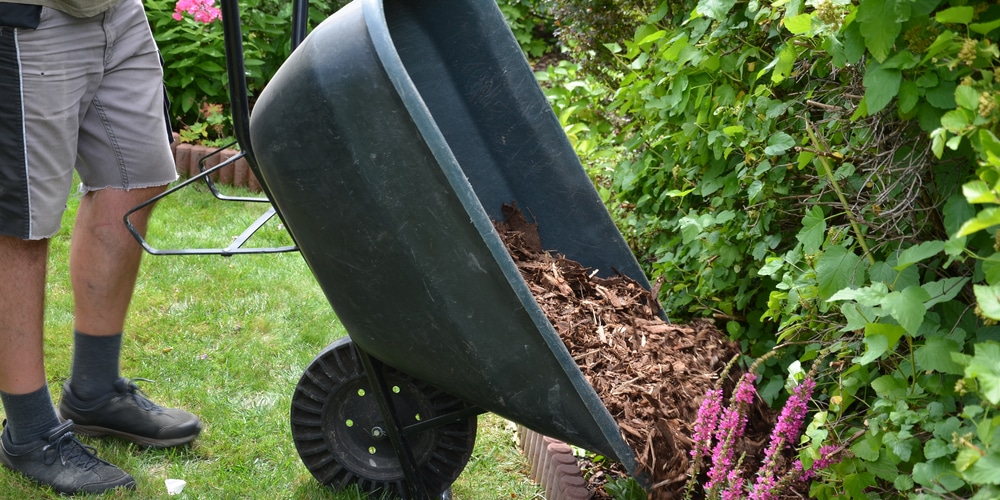Mulch is a vital part of a garden that serves more than making it look good. It retains moisture, helps protect plants from extreme temperatures, and reduces weed growth. You may be wondering what to do with old mulch.
Many varieties of mulch exist, ranging from wood, sawdust, leaf, and cardboard compositions. Not all mulch is organic, as there are rock and plastic types. But most mulch is organic and, thus, eventually degrades over time.
What To Do With Old Mulch
If you’re wondering what to do with old mulch, we’ll share the top two options with you here.
Use It as Soil Amendment

If you’re curious about what to do with old mulch that’s lost its texture, the answer is to turn it into a soil amendment.
Several situations can turn your mulch into pieces that are too small to do their job protecting your plants. They include:
- Sunlight
- Heavy rain
- Winter weather
The good news is that as organic matter, decaying mulch is an excellent fertilizer for your plants. It provides sources of nitrogen, phosphorus, and potassium that good microorganisms love to consume, turning them into usable nutrients for your plants.
To turn your mulch into a soil amendment, rake it into a pile away from your garden and mix it with compost. Composted manure and grass clippings are among the best items you can use, given that they help wood-based mulch decompose faster.
Then, dig up your soil using a spade or tiller.
Apply the mulch and compost blend to the soil, ensuring you mix it well—highly concentrated soil amendment could end up harming your plants. Once you sow your new plants, purchase fresh mulch and place it on top.
Reuse It for Another Year
If your mulch still has some texture with large pieces of its base material, you can reuse it again for the next growing cycle. Old mulch will still be effective at helping the soil retain moisture and preventing weed growth.
You might need to supplement your old mulch with new mulch. Ideally, you should pile mulch three to four inches high for it to work effectively. Even if much of it has settled, you’ll want to add some new mulch to your pile.
Not only will this save you money compared to purchasing a new batch of mulch, but using a top layer of new mulch will also make your garden appear more vibrant.
Below are some tips when you’re preparing to reuse your mulch for the next growing season:
- Rake it in the spring
- Remove the mulch from the soil
- Turn the mulch throughout the growing season
Even though mulch is good for the soil, it’s still essential to give your soil access to the air, as microorganisms rely on it to aid the ground with nutrient absorption. So, raking your old mulch is an excellent opportunity to do this. It’ll also help aerate the mulch so that it isn’t as compact when you lay it back down again.
We also encourage you to use a rake to turn over your mulch periodically during the growing season. That’ll reduce the risk of disease and keep your old and any new mulch you put down aerated and looking its best.
When Not To Use Old Mulch
Although old mulch often has many benefits to soil, there are certain situations when you should throw out your much instead of reusing or repurposing it. These situations include:
- Mulch near disease-infested plants
- Mulch with a lot of fruit and leaf content
- Mulch with a larvae infestation
The bottom line is that mulch can be a tool to transfer bacterial and fungal diseases that your plants had to the new plants you want to grow. Furthermore, many types of insect larvae are hardy enough to withstand the winter.
As a result, if you’re not careful with disposing of infected mulch, you could end up with the same disease and insect infestations as the year prior.
What To Do With Old Mulch: Conclusion
Mulch is expensive, so you understandably want to milk it for all its worth and retain as much value as possible. The good news is that reusing or repurposing organic mulch is an excellent option, saving you money and helping improve your soil’s quality.

